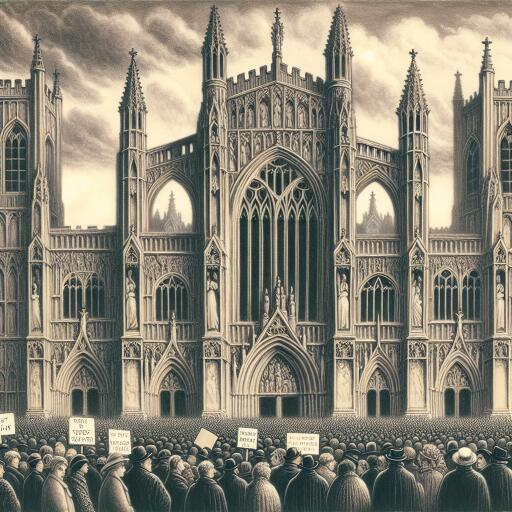New York Cathedral’s Funeral for Transgender Activist Stokes Controversy
In a recent gathering that has sparked widespread reaction, St. Patrick’s Cathedral in Manhattan became the site of a funeral that was anything but ordinary. The service commemorated the life of Cecilia Gentili, a figure celebrated for her advocacy in transgender rights, sex worker support, and HIV activism. Despite the cathedral’s storied history of hosting memorials for notable figures, this particular funeral drew criticism from church officials for its unprecedented nature.
The life celebration for Gentili attracted a large congregation, reflecting her impact on the transgender community and beyond. Supporters, friends, and fellow activists filled the cathedral, making known their admiration for Gentili’s lifelong fight for equality and inclusion. Her efforts in the community, including the founding of a health clinic for sex workers, underscored a legacy of compassion and activism that attendees were eager to honor.
However, the nature of the service prompted a sharp rebuttal from the Roman Catholic Archdiocese of New York. The issue at hand was not the remembrance of Gentili’s life but the manner in which the celebration was conducted. The Rev. Enrique Salvo, pastor of St. Patrick’s, expressed deep disappointment over what he termed as a “scandalous behavior” during the Mass, emphasizing that the church had been unaware of the planned proceedings which he felt marred the sanctity of the cathedral.
Gentili’s funeral included moments of vibrant expressions of grief and celebration, with attendees applauding, singing, and even chanting in honor of Gentili’s contributions to the LGBTQ+ community. A particular eulogy that referred to Gentili as a “saint” among activists added to the controversy, as it was widely shared across social platforms.
In their defense, Gentili’s family refuted claims of deception towards the church, arguing that the funeral service embodied a spirited defiance against perceived hypocrisy and discrimination within the church’s ranks towards transgender individuals. They maintained that the gathering was a testament to Gentili’s life, one that brought joy and celebration into the cathedral.
Gentili’s journey from a struggling sex worker to a beacon of hope for many in the transgender community, as well as her advocacy work with established health organizations, positions her as a significant figure in New York’s LGBTQ+ landscape. Her passing was acknowledged by many, including Gov. Kathy Hochul, who recognized her as a pioneering force for transgender rights.
The backlash to the funeral also extended to reactions to a performance by actor Billy Porter, who paid tribute to Gentili through song. A conservative group criticized the rendition, viewing it as inappropriate for the setting, yet Porter’s words before his performance highlighted the transformative influence Gentili had on many, emphasizing the personal nature of grief and the importance of honoring one’s process in moving towards healing and grace.
This event underscores the continuing tensions surrounding LGBTQ+ acceptance and the clash of traditional beliefs with calls for inclusivity and respect for all individuals’ rights to celebrate life and legacy in their way.
As debates and reactions continue to unfold, the occasion marks a significant moment of reflection for many on the journey toward understanding and embracing diversity within communities of faith and beyond.









